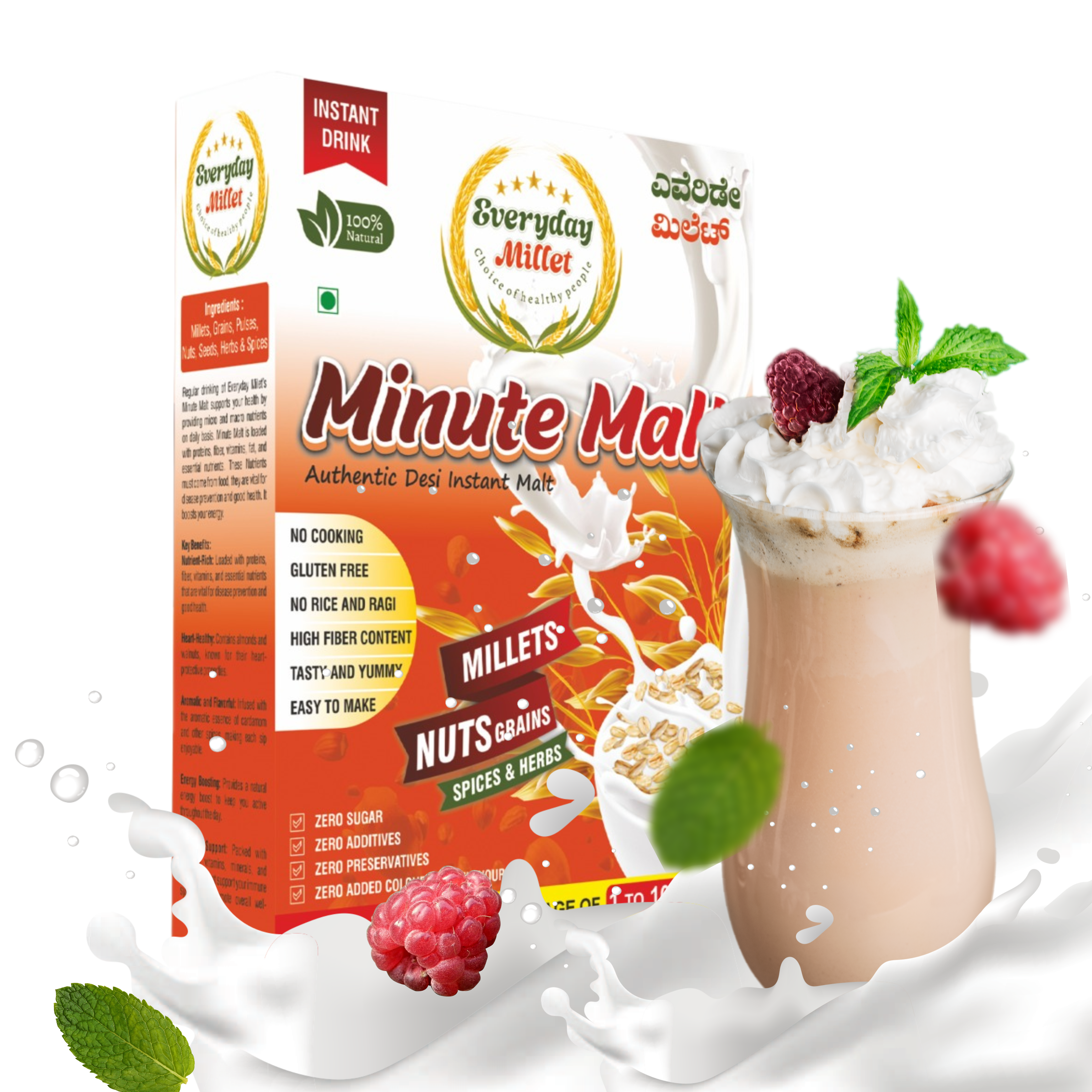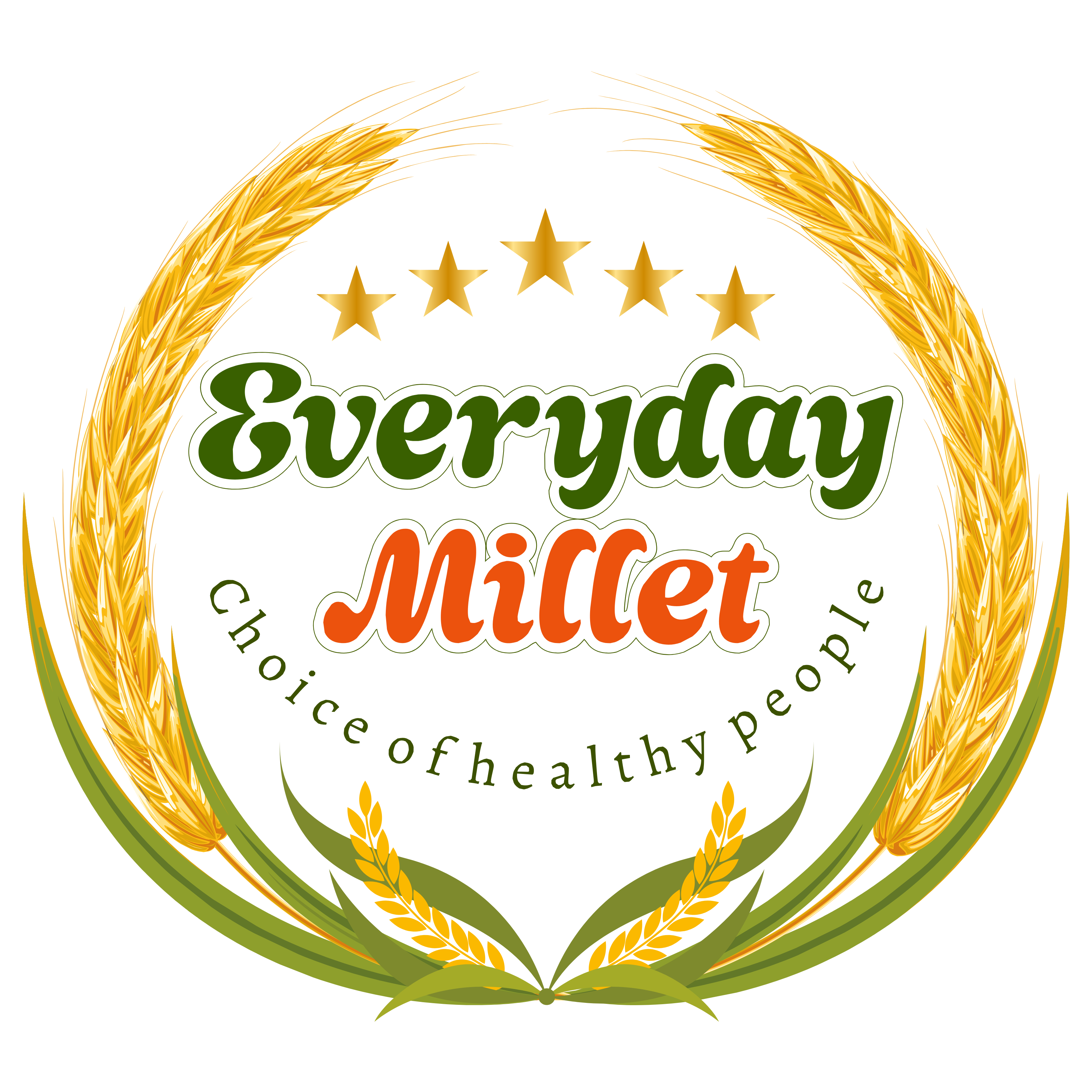What are Millets?
Millets are gluten-free grains that are rich in antioxidants, soluble fiber, protein, and calcium. It has more essential amino acids than most other cereals and is also an excellent source of:
- Vitamin A
- Vitamin B
- Phosphorus
- Potassium
- Antioxidants
- Niacin
- Iron
What are the types of Millet?
There are more than 20 different types of millet. Some of the more common varieties are:
- finger (Eleusine coracana) –> Ragi
- pearl (Pennisetum glaucum) –> Bajra
- Sorghum (Sorghum bicolor) –> Jowar
- foxtail (Setaria italica) –> Kangni/Navane
- proso (Panicum miliaceum) –> Barri/Baragu
- barnyard (Echinochloa utilis) –> Sanwa/Oodalu

What are the health benefits of consuming Millet?
Millet is rich in niacin, which is important for healthy skin and organ function. It also has beta-carotene, especially the dark-colored grains, which converts to vitamin A, helps your body fight free radicals, and supports your immune system. It also has the below health benefits:
- Controls blood sugar through protein adiponectin, thereby reducing the risk of diabetes, especially type 2 diabetes.
- Improves digestive health through fiber content and prebiotics which helps regulate bowel movements.
- Promotes anti-aging through antioxidants.
Protects the heart through vitamin B3 or niacin by reducing high levels of cholesterol and triglycerides. - Improves a person’s mood through amino acid-tryptophan.
- Builds healthy cells, manages obesity and reduces oxidative stress.


